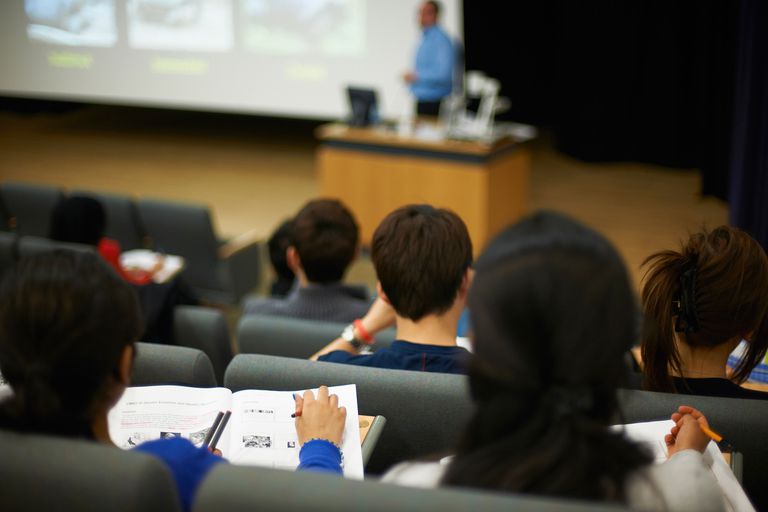EDUCATION
Knowledge, it is often said, is not outside power. What does happen when a teacher engages with her students in the classroom? Is it possible for her to activate the agency of her students as active participants in the learning process? A college teacher with her sociological sensibilities and everyday pedagogic practices reflects on this delicate issue.
Amrita Shastry teaches sociology at Jesus and Mary College, University of Delhi.

[dropcap]E[/dropcap]very day is an event in a teacher’s life. This event connects moments of apprehensions, curiosity, anxiety, and celebration in a circle. The apprehensions pertain to the student’s conduct, the curiosity pertains to the student’s imagination, the anxiety pertains to their expectations from me and my role performance; and the celebration lies in trying to make the effort worthwhile in all its moments. The circle repeats itself; but the feeling I experience always seems new. My experience as a teacher is one of continual traffic of thoughts and feelings- within and without, with myself and with my students. It happens in a stereotype classroom set up. But only the structure remains the same as I attempt to adopt new processes in defining relationship between the teacher and the taught. And it is not something ‘given’ as I negotiate with it in my everyday reality. In the present context, it is to state that a teacher does not automatically form a source of inspiration and a figure of reverence. She is no more an axis of power- not even in the classroom. With education increasingly becoming a wing of instrumentalism, a teacher is viewed as an agency to facilitate this instrumentality. This gaze of students makes her an agent of information and not knowledge. It is in this problematic that a teacher finds herself the day she steps into the classroom.
In this scenario a teacher has two options. In the first case, she would accept the thefactsituation and impart information. At this juncture, the idea of power is visualised with a negative connotation wherein power is wholly related to the notion of control, authority, discipline etc. The second way is to take up the challenge in attempting to incorporate a thirst for knowledge among the students. It is here I feel that the claim to my authority lies in the way I conduct the event at the site of everydayness.
It is in the latter challenge that a teacher can develop in the students a quest for knowledge, and reassert the legitimacy of power or authority that the role deserves. Though the teacher is constantly struggling with the distinction between being the authority and being authoritative in the classroom set up, my teaching experience is far removed from the expected and accepted norms of conduct between the teacher and the taught.
As a teacher I do not believe in the principle that teaching should always be fun filled, but I do believe in the power of creative engagement. When the normal classroom routine is broken by something like collage or theater or a storytelling, a playful unpredictability often emerges that lifts the energy of the classroom. I am interested in working with students inside out. I want them to understand human relationships, power dynamics, intense feelings by putting themselves in other person’s shoes for a while, and making them understand that the shoes might not perfectly fit them always.
They learn to think, feel, write, speak and draw like another person in another time and space. I also encourages them to reflect on it, step away from their imagined taken for granted realities, and strive for a different understanding of the world and about other people’s lives. It is in this sense that everyday teaching becomes an event in itself. The students I teach are adults; they redefine the notion of power every day. I challenge my students to locate the silent voices from the text, from the images and bring them to the manifestation.
In a metropolitan city like Delhi a student has access to innumerable points or modes of information. This explosion of access to information has very remarkably and very regrettably facilitated a sense of volatility in the relationship between the teacher and the taught. What is remarkable is that the sense of distance that one generally felt from the source of power that has been reduced.
However, in today’s time, a teacher is no more respected as a sole source of authority. Instead, a teacher and a student like any group of participants in a particular context are jointly responsible for constructing power in the classroom. It is a reflection both upon the young generation as learners and teaching as a profession and teachers as its agents. In general the traditional notion of power in classrooms has stereotyped the teacher as an autocratic ruler or a factory manager and the students have been called as the subjects or labourers.
It is here as a teacher I would intervene and like to redefine the notion of power vis a vis classroom teaching. Paulo Freire, we know, has challenged the conventional way of teaching, and seen a lot of fallacy in it. His educational philosophy is grounded in a critique of what he calls as “banking model”, and develops an alternative naming it as “dialogic model”. I too believe that student should be given the freedom to construct knowledge from the knowledge they already possess. The teacher here, I feel, should just be an emancipator, and must feel how the students understand the world so that she can understand how the student can learn. Nobody is powerful here; neither there is a feeling of powerlessness. Rather the student feels liberated from the shackles of conventional teaching reflects on her own experiences, and with the power given to her she emerges as victorious in her classroom set up.
Take, for instance, the experience of teaching the first year sociology students the concept of competition and cooperation through the example of musical chair. While playing the musical chair in the traditional manner, as the chair gets removed the competition increases and at the end there is one winner. But a little alteration in the rules of the game will create a paradigm shift in the student’s attitude towards it. Imagine the game without chair. One would sit down in somebody’s lap. Everything else remains same in the game except for sitting in someone’s lap. As the game continues fewer chairs were available and students were more and more cooperative and ultimately in the final round where no chair left and the music stops everyone still has to find out a lap. Though some believe it’s stupid, others try to find out a possibility, wherein eventually everybody sits – but no chairs! And everybody is a winner in this competitive world.
My everyday experience and engagement with the students have helped me to redefine what constitutes a responsible use of teacher power and which gives the students immense power to reproduce their own knowledge. I feel the power of the teacher should be transparent; it should be used for the betterment of the students; it should be open to challenges and criticism; and it should be exercised carefully and not arbitrarily. Though I feel each of these proposed rules are quite subjective, contradictory and might sound slippery, like what if something which I feel is good for the students, they might oppose it radically? What if while seeking critiques from the students they ask me to do something towards which I am committed? And what if by instilling in them the values of critical questioning, I am creating a space or work setting full of confrontations and hostility?
Unanswerable questions like these are endemic to any kind of teaching that takes power seriously. No doubt, they perplex me as a teacher and sometimes leave me with a feeling of hopelessness. But it is here my effort as a teacher is redirected not so much towards adaptation to the current situation but rather towards a humble attempt of negotiating with the problem at hand.










